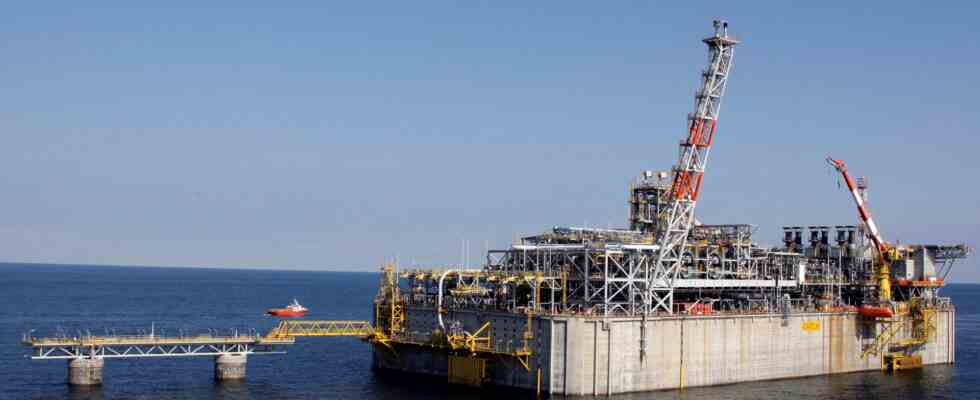As of: 04/30/2022 3:27 p.m
Germany wants to get away from Russian gas as quickly as possible. The solution is said to be liquid gas brought by ship, but there are no terminals for this yet. A new law aims to speed up their construction.
Liquid gas terminals are to be implemented more quickly in order to make Germany independent of Russian natural gas more quickly. The planning procedures for the plants are to be accelerated according to the will of the federal government – with a new law.
“One of Germany’s few options for procuring additional quantities of gas on the world market at short notice is the purchase of liquefied natural gas (LNG),” says a paper on the LNG Acceleration Act, which is available to the dpa news agency.
According to this, a formulation aid for the draft law jointly developed by the Ministry of Economic Affairs, Justice and the Environment is being coordinated between the government departments. The Russian gas supply stop to Poland and Bulgaria had fueled concerns about a similar step against Germany. The paper speaks of an “exceptional situation”.
There are still no LNG terminals in Germany. The first floating plant in Wilhelmshaven should be ready by winter, which could replace up to 20 percent of annual gas imports from Russia, as the Lower Saxony Environment Minister had explained.
Compromises when checking the environmental compatibility
But it should go even faster: According to the draft of the LNG Acceleration Act, certain requirements for the approval of the terminals should be allowed to be suspended – for example in the environmental impact assessment.
This should apply to both floating and land-based LNG terminals. The floating variants can be implemented more quickly, but construction work is necessary in both cases: they have to be connected to the natural gas pipeline network and some port facilities also have to be adapted.
Up to three billion euros for swimming terminals
LNG is natural gas that has been liquefied for transport by ship. In order to be able to feed it into the natural gas grid, it has to be converted back into its gaseous state.
According to the government, the contracts for three floating LNG terminals have been signed so far, and negotiations for a fourth are being prepared. Up to three billion euros are planned for the chartering of the swimming terminals and their operation over the next ten years.
The paper on the LNG Acceleration Act mentions Brunsbüttel in Schleswig-Holstein and Wilhelmshaven in Lower Saxony, where first floating and later land-based terminals are to be built.
Stade in Lower Saxony, Rostock in Mecklenburg-Western Pomerania and the Port of Hamburg have been under discussion for a long time as other possible locations. The paper states: “Whether the individual locations will then be realized depends on various legal, technical and economic factors.”

